14 Stocks Already Hurt by President Donald Trump's Tariffs
America's nearly two-year-old trade war with China, as well as salvos with Europe and Mexico, has battered a wide swath of stocks.
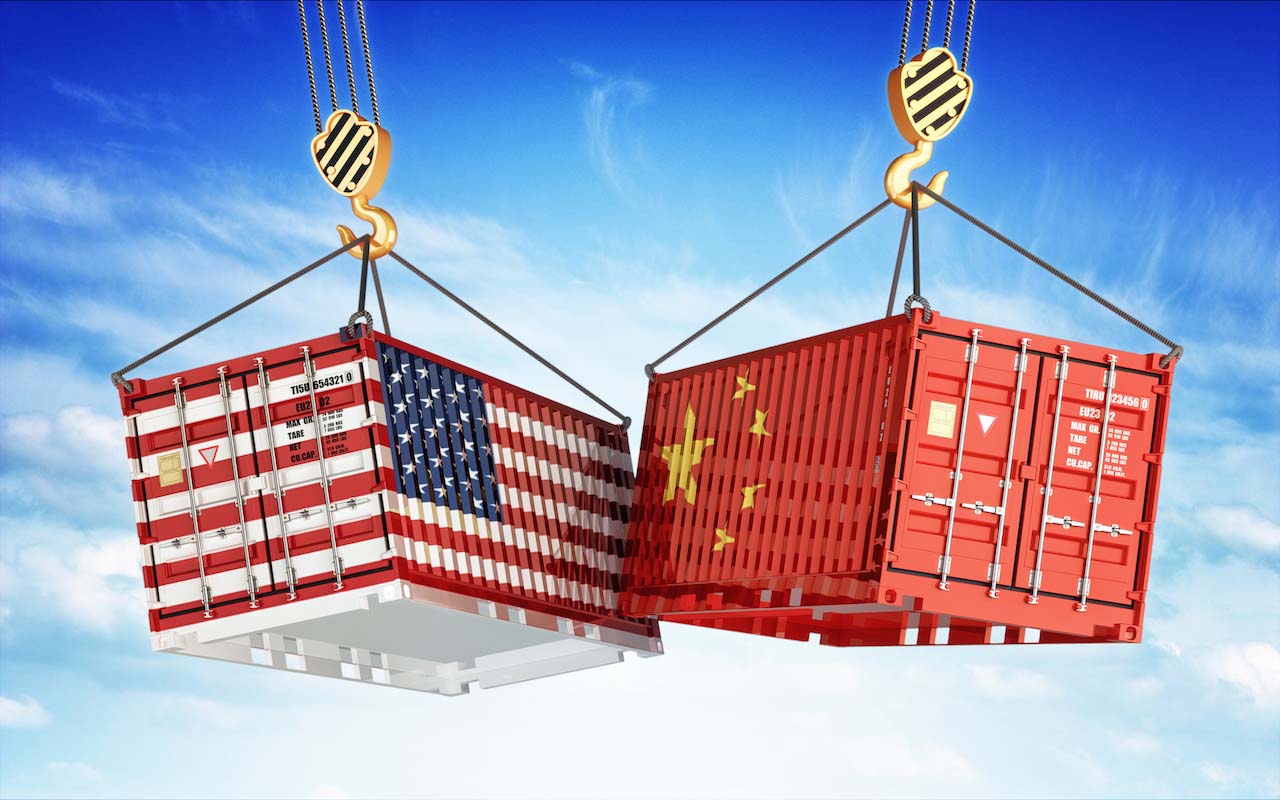
Profit and prosper with the best of Kiplinger's advice on investing, taxes, retirement, personal finance and much more. Delivered daily. Enter your email in the box and click Sign Me Up.
You are now subscribed
Your newsletter sign-up was successful
Want to add more newsletters?

Delivered daily
Kiplinger Today
Profit and prosper with the best of Kiplinger's advice on investing, taxes, retirement, personal finance and much more delivered daily. Smart money moves start here.

Sent five days a week
Kiplinger A Step Ahead
Get practical help to make better financial decisions in your everyday life, from spending to savings on top deals.

Delivered daily
Kiplinger Closing Bell
Get today's biggest financial and investing headlines delivered to your inbox every day the U.S. stock market is open.

Sent twice a week
Kiplinger Adviser Intel
Financial pros across the country share best practices and fresh tactics to preserve and grow your wealth.

Delivered weekly
Kiplinger Tax Tips
Trim your federal and state tax bills with practical tax-planning and tax-cutting strategies.

Sent twice a week
Kiplinger Retirement Tips
Your twice-a-week guide to planning and enjoying a financially secure and richly rewarding retirement

Sent bimonthly.
Kiplinger Adviser Angle
Insights for advisers, wealth managers and other financial professionals.

Sent twice a week
Kiplinger Investing Weekly
Your twice-a-week roundup of promising stocks, funds, companies and industries you should consider, ones you should avoid, and why.

Sent weekly for six weeks
Kiplinger Invest for Retirement
Your step-by-step six-part series on how to invest for retirement, from devising a successful strategy to exactly which investments to choose.
America's nearly two-year-old trade war with China, as well as salvos with Europe and Mexico, has battered a wide swath of stocks. President Donald Trump’s tariffs (and retaliatory duties) have weighed on companies in various forms, such as higher input costs and unsold inventory.
The pinch is being felt on a wide scale. Global growth was already slowing, though market analysts and foreign leaders alike think the trade war is making things worse. Here at home, manufacturing is thinning, reflecting waning demand. ISM’s purchasing managers’ index reading for August was just 49.1. Anything under 50 signals a contraction in activity, meaning August was the first month in three years that American manufacturing receded.
The result has been a pullback in numerous stocks. Buying these tariff-assisted dips is risky because some of the companies face headwinds outside of trade uncertainty. But a resolution between the U.S. and China would bring much-needed relief to many companies, and perhaps a bounceback in their shares. You can see the potential every time the market rallies on the smallest of optimistic hints.
“(These) value stocks will deliver attractive returns after the tariff resolution, like a coiled spring that pops up," says Michael Underhill, chief investment officer of Capital Innovations in Pewaukee, Wisconsin. He thinks the market could continue to move higher heading into October’s negotiations. If more concrete progress is made, a sustained rally will continue, he says.
Here, then, are 14 stocks that have already felt the burn from President Donald Trump’s tariffs (and retaliatory taxes). Some represent potential should Washington reel in its tariff threats, but they may continue to suffer any time trade tensions reignite. And a few are trying to pivot their businesses out of harm's way.
Data is as of Sept. 12. Dividend yields are calculated by annualizing the most recent quarterly payout and dividing by the share price. Analyst opinions provided by The Wall Street Journal.
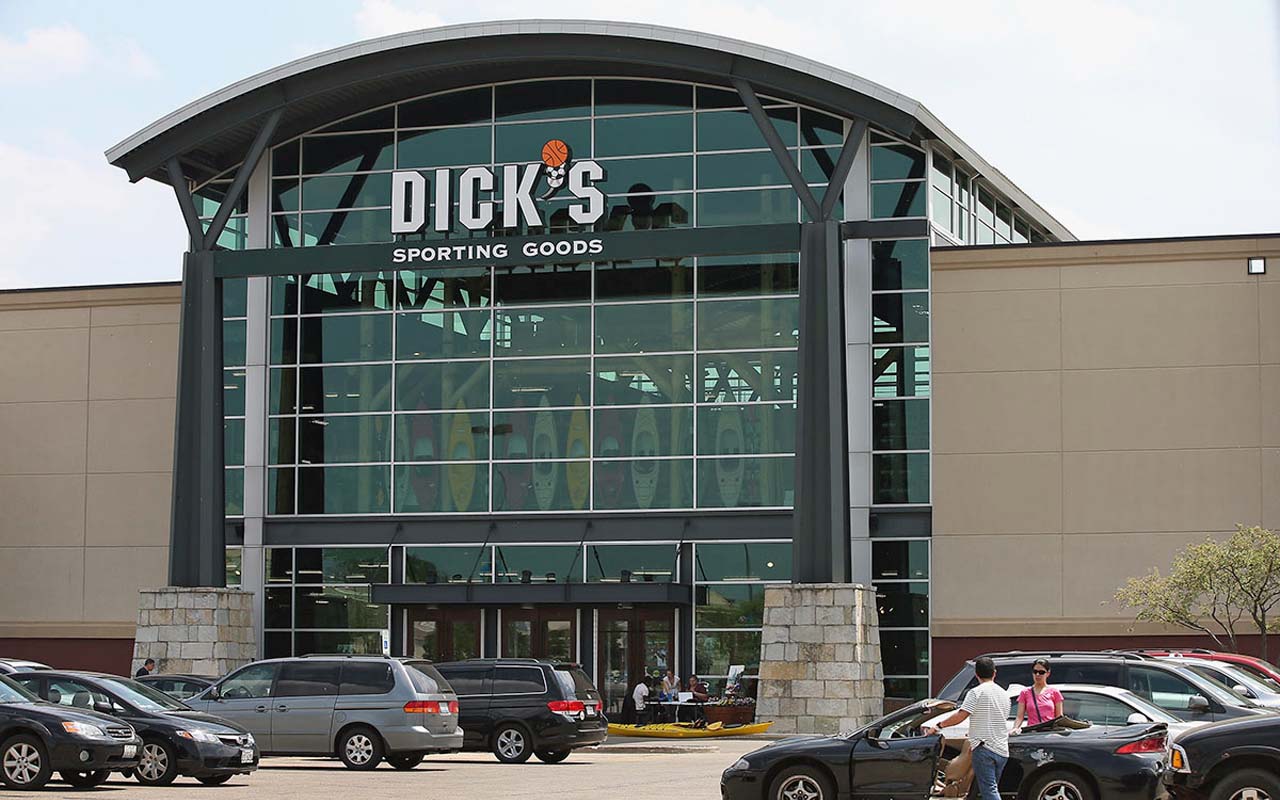
Dick's Sporting Goods
- Market value: $3.5 billion
- Dividend yield: 2.9%
- Analysts' opinion: 4 Buy, 1 Overweight, 19 Hold, 0 Underweight, 0 Sell
Dick's Sporting Goods (DKS, $38.61) operates 857 U.S. stores that consists of 727 Dick's Sporting Goods locations and 130 under the Golf Galaxy and Field & Stream banners. And it faces a laundry list of issues regardless of what happens with trade talks.
Retailers focused on sporting goods, athletic apparel and footwear are facing considerable headwinds, including a loss of business to e-tailers. Many of the industry’s names already carry too much inventory, and Cowen analyst John Kernan writes that the "environment remains promotional” – in other words, retailers are resorting to sales, which is narrowing profit margins.
Dick’s second-quarter earnings were better than analysts expected, but overall inventory rose by 19% while sales only improved by 3.8%. That’s Dick’s third consecutive quarter with a negative sales-to-inventory spread, Kernan writes.
The Cowen analyst now is projecting free cash flow (the cash remaining after a company has paid its expenses, interest on debt, taxes and long-term investments) of just $235 million in for Dick’s fiscal 2019 – less than half its $515 million in FCF last year.
Kernan also lowered his price target on DKS from $36 per share to $33 per share, writing that he sees “ potential for a significant margin headwind in FY20 if the tariff situation escalates from 10% to 25%. … Under a Draconian 25% tariff scenario, the impact could be as much as (80 cents per share) to FY20 EPS."
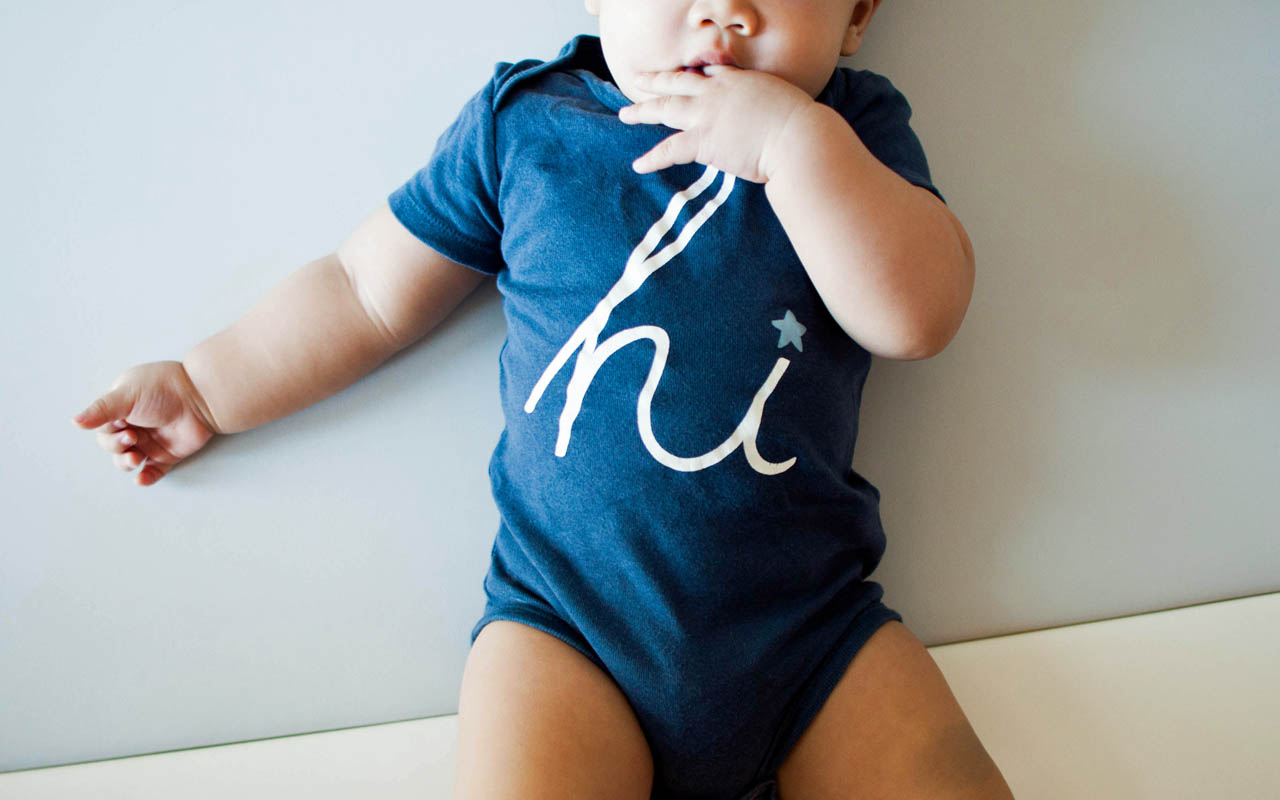
Carter's
- Market value: $4.3 billion
- Dividend yield: 2.1%
- Analysts' opinion: 5 Buy, 0 Overweight, 7 Hold, 0 Underweight, 0 Sell
Atlanta-based Carter's, (CRI, $96.84), which manufactures and sells infant and children's clothing, is an example of a company that’s already pivoting to fight back against the effects of U.S. and Chinese tariffs.
Take its second-quarter earnings, for instance. Carter's grew adjusted profits by 21% year-over-year, to 95 cents per share. Revenues were 5% higher to $734 million. Both figures topped analysts' expectations for 80 cents per share and $731 million, respectively.
Why the strong quarter? Carter’s said the impact of the tariffs on its profit margins has been minimized because it has lowered the percentage of clothing made in China sent to the U.S.
CEO Michael D. Casey said during the Q2 conference call that Carter’s previous exposure to those tariffs was estimated to be about $100 million on an annual basis. However, the "mix of China sourced products from 26% last year is now reduced to 20% this year," he said.
Carter’s also "developed a plan to further reduce our production in China if needed and negotiated price concessions expected from our suppliers if List 4 tariffs are imposed."
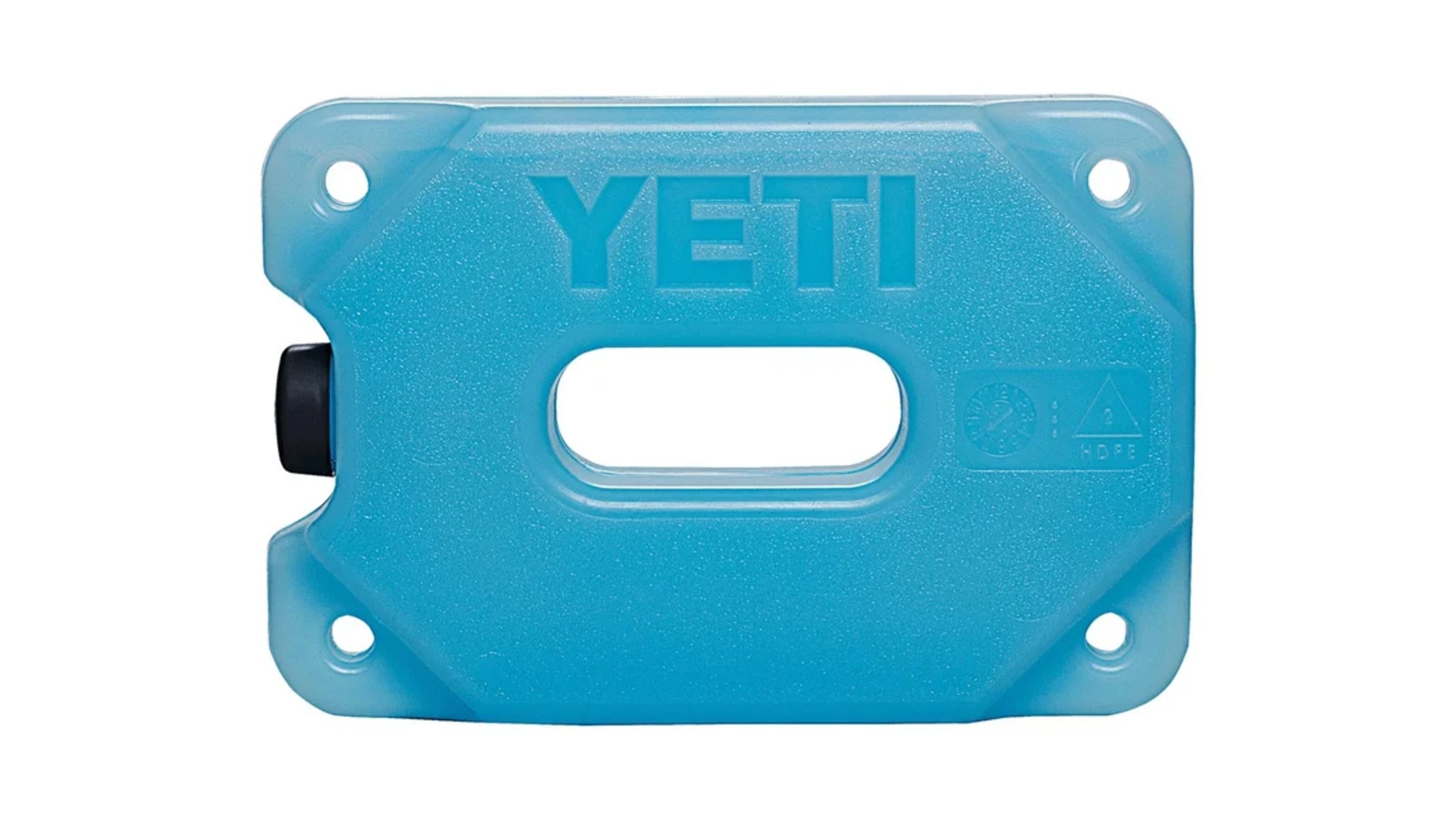
Yeti Holdings
- Market value: $2.6 billion
- Dividend yield: N/A
- Analysts' opinion: 9 Buy, 2 Overweight, 2 Hold, 0 Underweight, 0 Sell
Yeti Holdings (YETI, $30.70) – the sensational “it” name in high-end coolers and other outdoor products – says it has planned ahead for the impact of tariffs ever since September 2018.
However, Cowen’s Kernan lumps YETI in with Carter’s and Dick’s, saying they all face “the most significant financial headwinds.” Yeti also faces the "greatest relative gross margin risk from tariffs,” he writes.
Yeti’s performance from the second quarter was at least positive. Sales improved by 12.3%, beating both Cowen’s estimate and the consensus forecast of 9% year-over-year growth. Profits of 33 cents per share also beat both the average estimate (30 cents) and Cowen’s (32 cents). The company did suffer a 2-cent-per-share hit from tariffs, though it was partly offset by lower SG&A (selling, general and administrative expenses).
During the company’s second-quarter earnings call, management said it plans to move most of its soft cooler and bag production out of China by the end of this year. Chief Financial Officer Paul Carbone said, “In the back half of the year, we'll continue to see tariffs,” but the supply chain’s move out of China will gradually “bring down the tariff impact.”

Skyworks Solutions
- Market value: $14.1 billion
- Dividend yield: 2.1%
- Analysts' opinion: 11 Buy, 0 Overweight, 6 Hold, 0 Underweight, 0 Sell
Skyworks Solutions (SWKS, $82.33) is a trailblazer in the semiconductor and wireless chip space, but it has taken investors on a roller-coaster ride in 2019. It jumped by more than 50% between its January lows and April highs, then gave up about a third of its value through May, and has since gained 25% in an up-and-down fashion.
Chris Osmond, chief investment officer at Prime Capital Investment Advisors, says you can blame geopolitical and international security concerns surrounding the U.S.-China trade war.
Some of SWKS' largest customers, including Apple (AAPL) and Chinese tech giant Huawei, are being directly impacted by the tariffs – and worse, Huawei landed on the United States’ “Entity List,” which prohibits Skyworks from doing business with it. That’s a problem, as those two companies alone account for roughly 60% of Skyworks’ revenues. In its most recent quarter, revenues fell 14% year-over-year and earnings plunged by 47%.
Since nearly 25% of SWKS' revenue is generated from China, continued trade tensions and any economic slowdown in China will "certainly remain a headwind for the company," Osmond says.
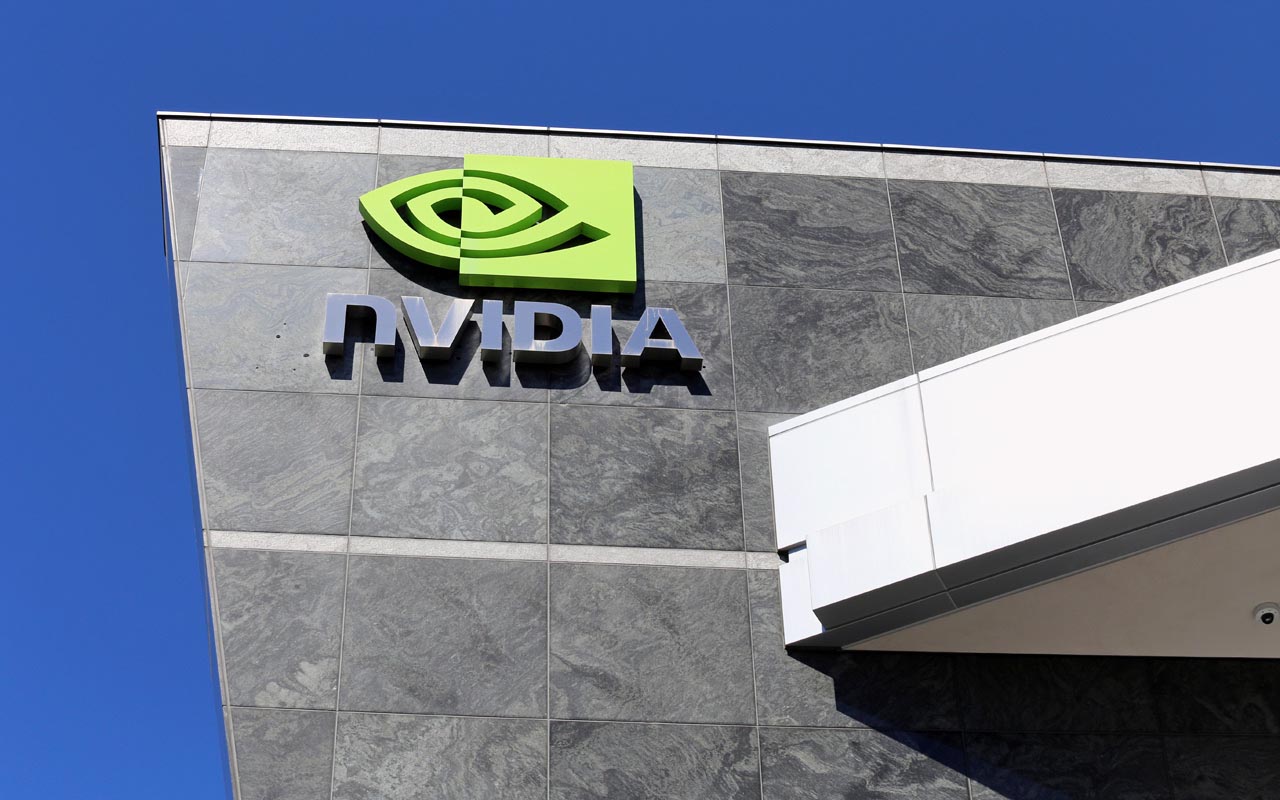
Nvidia
- Market value: $112.2 billion
- Dividend yield: 0.4%
- Analysts' opinion: 23 Buy, 2 Overweight, 9 Hold, 2 Underweight, 1 Sell
Nvidia (NVDA, $184.27) is a semiconductor company focused on visual computing, with an emphasis on gaming, data centers and auto. It’s also increasingly penetrating next-gen technologies such as self-driving cars, robots and artificial intelligence.
China is currently the planet’s largest gaming market by revenues, though the U.S. is expected to surpass the country by the end of 2019. Still, China represents nearly a quarter of Nvidia’s revenue, so naturally, the trade war has hit the chipmaker hard. Shares actually have outperformed the market with 38% gains year-to-date, but those gains have come in an extremely volatile manner, and the stock remains 36% off its October 2018 peak.
"The fear of losing their supply chain and near 25% revenue from China could pose a detrimental risk," Osmond says.
Operational results have regressed so far in 2019. First-quarter adjusted earnings slumped 57% year-over-year; Q2’s profits were off by 36%. Nonetheless, shares have perked up ever since mid-August, when the Trump administration announced it would delay certain tariffs, set to go into effect Sept. 1, until Dec. 15.
But this could just be a temporary respite. "Even with the postponement, this may just be strategic in avoiding some of the effects on the holiday shopping (season)," Osmond says.
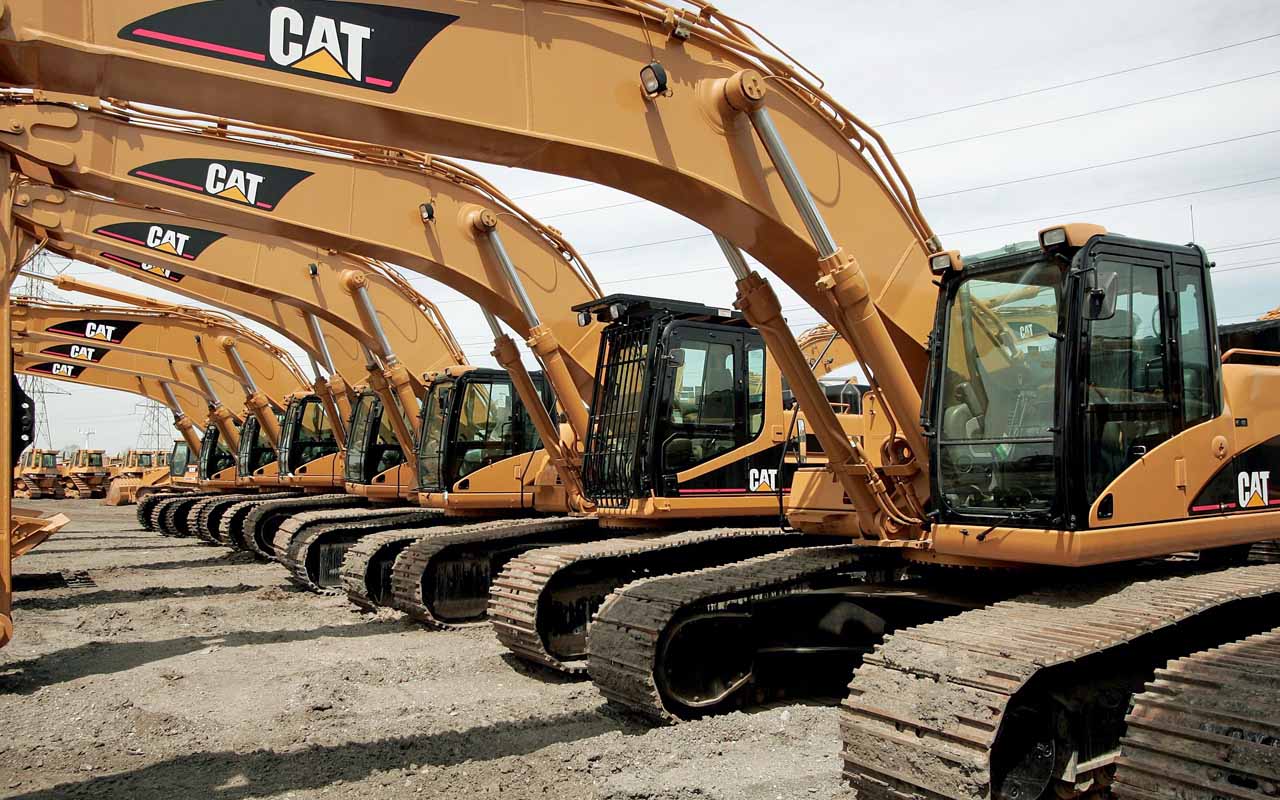
Caterpillar
- Market value: $74.1 billion
- Dividend yield: 3.1%
- Analysts' opinion: 10 Buy, 1 Overweight, 11 Hold, 1 Underweight, 2 Sell
Heavy equipment manufacturer Caterpillar (CAT, $131.75) paid $70 million in tariffs in the second quarter of 2019, which would’ve added another 4% or so to its quarterly profits. And the company expects to pay between $250 million and $350 million for the full year.
That’s not Caterpillar’s only issue, of course. Osmond points out that the combination of weak sales in China, declines in the sale of oil-and-gas equipment in North America and the overall challenging market environment have eaten away at Caterpillar’s bottom line.
Demand for equipment sales needs to be monitored closely as global manufacturing declines, Capital Innovations’ Underhill says.
One positive note: Caterpillar did reiterate confidence in its ability to generate cash flow throughout the current business cycle. It forecasts Machinery, Energy & Transportation cash flow of between $4 billion and $8 billion annually – about $1 billion to $2 billion better than CAT’s previous cycle (2010-16).
The stock is "better positioned this cycle,” Underhill says, thanks to “a rock-solid balance sheet, heavy lifting on restructuring done and the ability to invest consistently throughout the cycle.
In other words, a solution on the trade front could be a significant catalyst for an otherwise strong company.
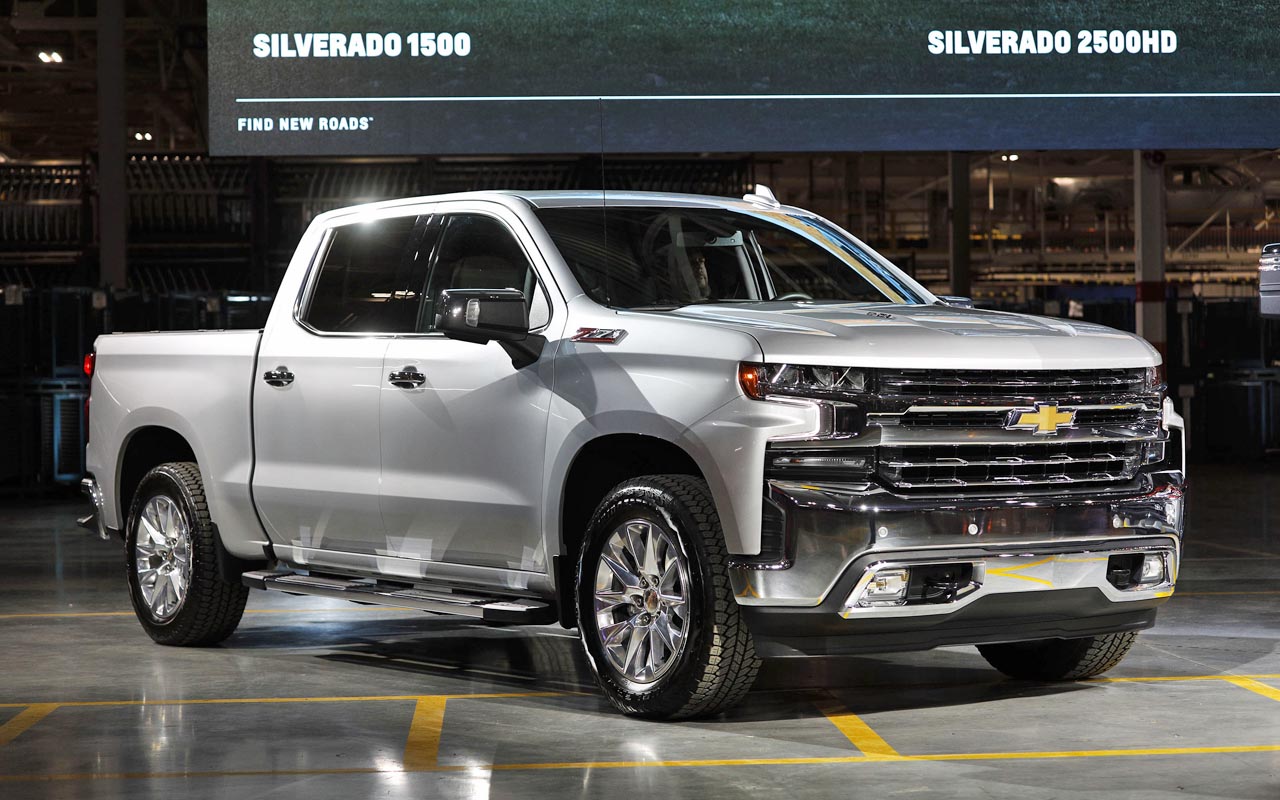
General Motors
- Market value: $55.8 billion
- Dividend yield: 3.9%
- Analysts' opinion: 12 Buy, 2 Overweight, 5 Hold, 0 Underweight, 0 Sell
General Motors (GM, $39.07) is facing a slew of issues. The U.S. is three years removed from “peak auto” – the country’s high point for auto sales. As cars and trucks become more durable, consumers are keeping them longer. And GM now has to face the United Auto Workers union in negotiating talks – likely contentious talks given that the Detroit automaker announced plans to kill off some of its less popular models and halted production at several plants.
But the trade war is another thorn in its side. China said in August it will resume a 25% tariff on U.S. auto imports, as well as 5% on parts and components, effective Dec. 15. All told, taxes on imported American cars could reach up to 50%.
General Motors, despite a thriving Chinese business, is less exposed to the tariffs than competitors such as Ford (F) and Tesla (TSLA) because GM makes many of its vehicles in China for domestic consumption.
But GM faces other aspects of a trade war. For instance, in both the U.S. and China, the potential for slower buying due to concerns about slowing economic growth. And in its Chinese market, General Motors also must worry about a potential consumer move away from American brands as long as the trade war marches on.
GM has drawn the president’s ire, too.
“President Trump tweeted that GM had moved major plants to China before he came into office," says Robert Johnson, a Creighton University finance professor in Omaha, Nebraska. However, he says only about 1% of the company’s sales in China came from cars built in China and sold in the U.S.

Harley-Davidson
- Market value: $5.7 billion
- Dividend yield: 4.2%
- Analysts' opinion: 3 Buy, 0 Overweight, 14 Hold, 0 Underweight, 1 Sell
Storied American company Harley-Davidson (HOG, $36.05) is an iconic brand, albeit one that’s having serious issues with reeling in younger customers. Millennials are less likely to buy a motorcycle than previous generations – and many of those who are interested are instead opting for Harley’s competitors.
“They need to see better growth with middle-aged and young people and their smaller bikes,” Edward Jones analyst Brian Yarbrough told CNBC following Harley’s second-quarter report in late July.
Thus, Harley’s underperformance in 2019 (5.7% year-to-date versus 20% for the S&P 500) can’t be chalked up entirely to tariff issues. But trade issues – not so much with China, but with Europe – are being felt nonetheless.
“We're not as impacted with tariffs on Chinese imports because we don't import much from China,” CEO Matt Levatich said during the company’s first-quarter earnings call in April. “The big impact for us is the European Union tariffs, and nothing has changed since the European Union increased the import tariff from 6% to 31% last June.”
Harley is trying to improve margins by moving production of motorcycles earmarked for the EU at its Thailand facility; it received favorable tariff treatment for softail and sportster bikes, “reducing tariffs on these bikes from 31% to 6%,” and Levatich says they expect similar approval for other motorcycles later this year.
Chief Financial Officer John Olin said the move should restore “roughly $100 million of annualized margin” beginning in Q2 2020.
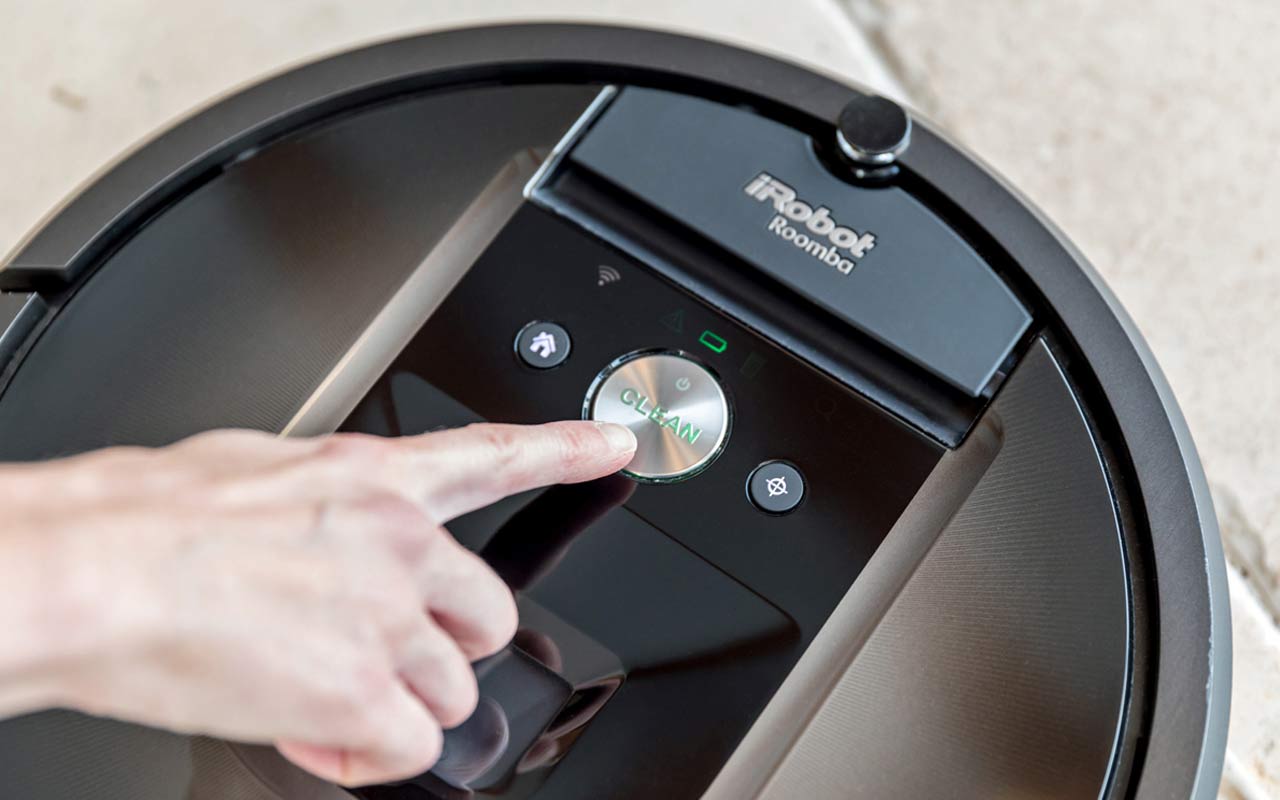
iRobot
- Market value: $1.8 billion
- Dividend yield: N/A
- Analysts' opinion: 2 Buy, 0 Overweight, 7 Hold, 0 Underweight, 0 Sell
By now, most American consumers are at least familiar with iRobot's (IRBT, $65.66) primary product: the Roomba. The little vacuuming robots (from both iRobot and its competitors) are transitioning from being a niche tech interest to an upper-class household staple.
But the tariffs are putting Roomba in a corner.
“We are ... navigating the US market segment that is growing more slowly than we had originally anticipated, driven by the direct and indirect impacts of the ongoing US/China trade war and related tariffs,” CEO Colin Angle said during iRobot’s second-quarter earnings call in July. The company, which had to raise prices on some products after the Trump administration hiked Chinese tariffs to 25% on $250 billion worth of imports, reported lower-than-expected revenues of $260.2 million. That marks the second consecutive quarter IRBT has missed on the top line.
Worse, the company downgraded its full-year growth estimates from a previous range of 17% to 20% to a new range of 10% to 14%, citing “the implementation of increased tariffs to 25% on May 10th.”
Angle said during the conference call that IRBT applied for an exclusion from the 25% tariffs and attended several Washington, D.C. meetings. But a decision on an exemption is “unclear.”
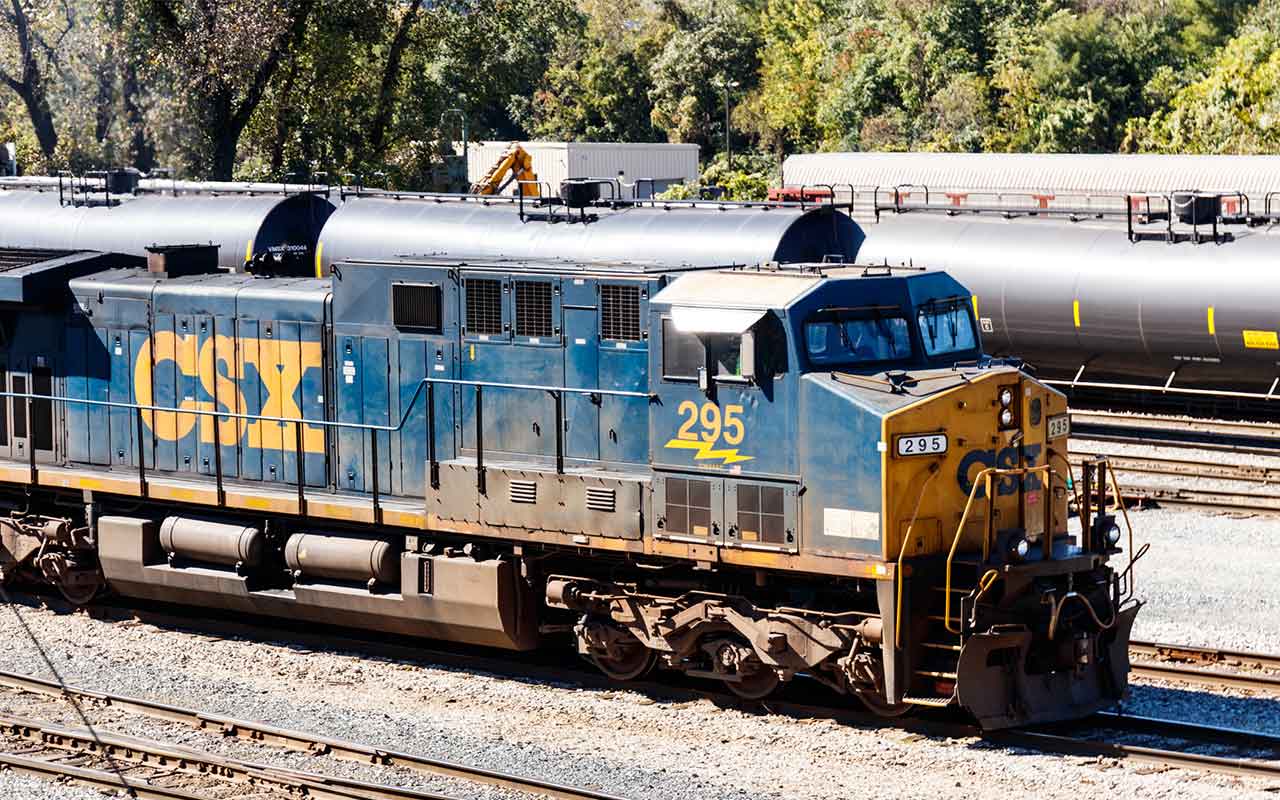
CSX Corp.
- Market value: $57.1 billion
- Dividend yield: 1.3%
- Analysts' opinion: 7 Buy, 3 Overweight, 14 Hold, 0 Underweight, 1 Sell
James Foote, CEO of rail transportation stock CSX Corp. (CSX, $71.55), dropped jaws in July when he said “The present economic backdrop is one of the most puzzling I have experienced in my career.”
That comment followed a second-quarter earnings report that revealed disappointing profits, lower revenues and shrinking shipping volumes. “Both global and U.S. economic conditions have been unusual this year, to say the least, and have impacted our volumes,” Foote said on the conference call. “You see it every week in our reported carloads.”
Part of the issue is that U.S. importers essentially piled up inventory of Chinese-made goods last year to dodge upcoming tariffs.
In June, John Gray, senior vice president of policy and economics for the Association of American Railroads, said weakness in rail traffic was being caused by several factors, but those included “heightened economic uncertainty that’s being made worse by increased trade-related tensions” and “higher tariffs leading to reductions or disruptions of international trade.”
“A resolution or clarity on trade and tariffs would obviously help,” Mark Kenneth Wallace, executive vice president of CSX, said on the Q2 conference call, “but that is obviously beyond our control.”

PPG Industries
- Market value: $27.9 billion
- Dividend yield: 1.7%
- Analysts' opinion: 9 Buy, 1 Overweight, 12 Hold, 1 Underweight, 1 Sell
Paints, coatings and specialty materials supplier PPG Industries (PPG, $118.21) is being hit more indirectly by tariffs – not through the levies themselves, but from the resulting economic fallout.
For instance, the company reported a 2.6% year-over-year decline in sales during its second quarter – a performance that Morningstar equity analyst Charles Gross called “uninspiring.”
“Besides second-quarter results, we've thoroughly reviewed and revised the core assumptions driving our PPG valuation,” writes Gross, who lowered his price target from $98 per share to $85 per share.
The company saw lower demand for paint and coatings in China and Europe because of reduced auto production; the number of cars built in China fell by almost 20% year-over-year, according to PPG Industries CEO Michael McGarry.
“We expect global economic activity to remain sluggish,” McGarry said on the July earnings call, adding that he thinks the company will benefit from whenever the Chinese automotive market rebounds.
“I don’t think the trends we’re seeing right now are going to continue but the single biggest factor in this is the trade war,” McGarry said. “People have money in their pocket in China and people are employed – it’s (just) a lack of consumer confidence.”
He says a trade settlement would boost that confidence, however, adding, “Whenever this does settle, we will see a pop.”

Bed Bath & Beyond
- Market value: $1.4 billion
- Dividend yield: 6.4%
- Analysts' opinion: 2 Buy, 0 Overweight, 15 Hold, 0 Underweight, 3 Sell
Home furnishings retailer Bed Bath & Beyond (BBBY, $10.64) is likely to experience more short-term pain. UBS equity analyst Michael Lasser said back in May that BBBY and other home goods retailers such as Williams-Sonoma (WSM) and Restoration Hardware (RH) are looking at "significant" risk because so many of their products are manufactured in China.
“If the move to 25% tariffs goes through and it persists for an extended period, we believe the impact to many hardline, broadlines, and food retailers would be significant,” Lasser wrote in a May research note about the retail space. “The brunt of a full 25% tariff would likely be quite inflationary as the retailers have indicated they would use strategic price actions, where possible to mitigate the impact.”
The ongoing trade war puts Bed Bath in the crosshairs, as 17% of its goods are exposed to Chinese tariffs, according to analysis conducted by UBS of company conference calls and reports.
Bed Bath has plenty of other problems, too. The company’s most recently quarterly earnings revealed a $371.1 million net loss on sales of $2.57 billion that declined more than 6% year-over-year. The company has suffered impairment charges in the hundreds of millions of dollars in two consecutive quarters. Former CEO Steven Temares was nudged out in May. And activist investors have pressured the company into appointing four new directors to its board.

Deere
- Market value: $51.4 billion
- Dividend yield: 1.9%
- Analysts' opinion: 12 Buy, 1 Overweight, 8 Hold, 0 Underweight, 1 Sell
Farm equipment maker Deere (DE, $163.26) has weathered many storms, but it’s facing more than just trade disputes with China. Disastrous weather in 2019 has hampered production levels across the Midwest, and farmers concerned about tariffs levied by China have pushed back equipment purchases.
Its most recent quarterly results were dismal. Profits of $2.71 per share were well short of expectations for $2.85. Revenues of $8.97 billion missed the mark, too; analysts were looking for $9.39 billion. That forced the company to lower its full-year guidance for the second consecutive quarter. Deere previously predicted a 5% improvement in sales and profits of $3.3 billion; that’s been downgraded to 4% revenue growth and $3.2 billion in net income.
DE shares are underperforming as a result, up 10% year-to-date, and in wobbly fashion.
CEO Samuel Allen said in a statement that DE has felt the impact of "concerns about export-market access," demand for soybeans and overall crop conditions resulted in farmers waiting to buy more equipment.
Deere also is vulnerable in other ways, such as the steel tariffs imposed in 2018 that affected margins on its equipment.

Bunge
- Market value: $8.1 billion
- Dividend yield: 3.5%
- Analysts' opinion: 5 Buy, 1 Overweight, 4 Hold, 0 Underweight, 0 Sell
Agricultural commodity supplier and trader Bunge (BG, $57.50) has underperformed the S&P 500 with mere 6% gains in 2019, and hasn’t really recovered since 2018’s fourth-quarter slump.
China’s 25% tariff on soy imports, implemented last year, has hit the soybean market hard.
“Nobody’s willing to take the risk of committing to U.S. soybeans to China in the current context, knowing that there could be a $100 penalty from one day to the other, and no way of managing that risk,” then-CEO Soren Schroder told Reuters in May 2018. (Schroder stepped down in December amid a host of other issues, including slumping grain prices.)
A small bit of good news: Beijing recently announced it would exempt some U.S. soybeans (among other products) from newer tariffs, as the U.S. and China begin to make small concessions ahead of planned October talks.
Nonetheless, Bunge still is smarting from a surprise quarterly loss announced in August. It made a bet that soybean futures would rise, but a ramp-up in tensions during the quarter sent prices tanking. This kind of hit may remain a threat as long as Washington and Beijing continue their on-again, off-again negotiations.
Profit and prosper with the best of Kiplinger's advice on investing, taxes, retirement, personal finance and much more. Delivered daily. Enter your email in the box and click Sign Me Up.
-
 5 Vince Lombardi Quotes Retirees Should Live By
5 Vince Lombardi Quotes Retirees Should Live ByThe iconic football coach's philosophy can help retirees win at the game of life.
-
 The $200,000 Olympic 'Pension' is a Retirement Game-Changer for Team USA
The $200,000 Olympic 'Pension' is a Retirement Game-Changer for Team USAThe donation by financier Ross Stevens is meant to be a "retirement program" for Team USA Olympic and Paralympic athletes.
-
 10 Cheapest Places to Live in Colorado
10 Cheapest Places to Live in ColoradoProperty Tax Looking for a cozy cabin near the slopes? These Colorado counties combine reasonable house prices with the state's lowest property tax bills.
-
 What Fed Rate Cuts Mean For Fixed-Income Investors
What Fed Rate Cuts Mean For Fixed-Income InvestorsThe Fed's rate-cutting campaign has the fixed-income market set for an encore of Q4 2024.
-
 The Most Tax-Friendly States for Investing in 2025 (Hint: There Are Two)
The Most Tax-Friendly States for Investing in 2025 (Hint: There Are Two)State Taxes Living in one of these places could lower your 2025 investment taxes — especially if you invest in real estate.
-
 The Final Countdown for Retirees with Investment Income
The Final Countdown for Retirees with Investment IncomeRetirement Tax Don’t assume Social Security withholding is enough. Some retirement income may require a quarterly estimated tax payment by the September 15 deadline.
-
 The 24 Cheapest Places To Retire in the US
The 24 Cheapest Places To Retire in the USWhen you're trying to balance a fixed income with an enjoyable retirement, the cost of living is a crucial factor to consider. Is your city the best?
-
 Dividends Are in a Rut
Dividends Are in a RutDividends may be going through a rough patch, but income investors should exercise patience.
-
 Municipal Bonds Stand Firm
Municipal Bonds Stand FirmIf you have the cash to invest, municipal bonds are a worthy alternative to CDs or Treasuries – even as they stare down credit-market Armageddon.
-
 High Yields From High-Rate Lenders
High Yields From High-Rate LendersInvestors seeking out high yields can find them in high-rate lenders, non-bank lenders and a few financial REITs.
-
 Time to Consider Foreign Bonds
Time to Consider Foreign BondsIn 2023, foreign bonds deserve a place on the fringes of a total-return-oriented fixed-income portfolio.
